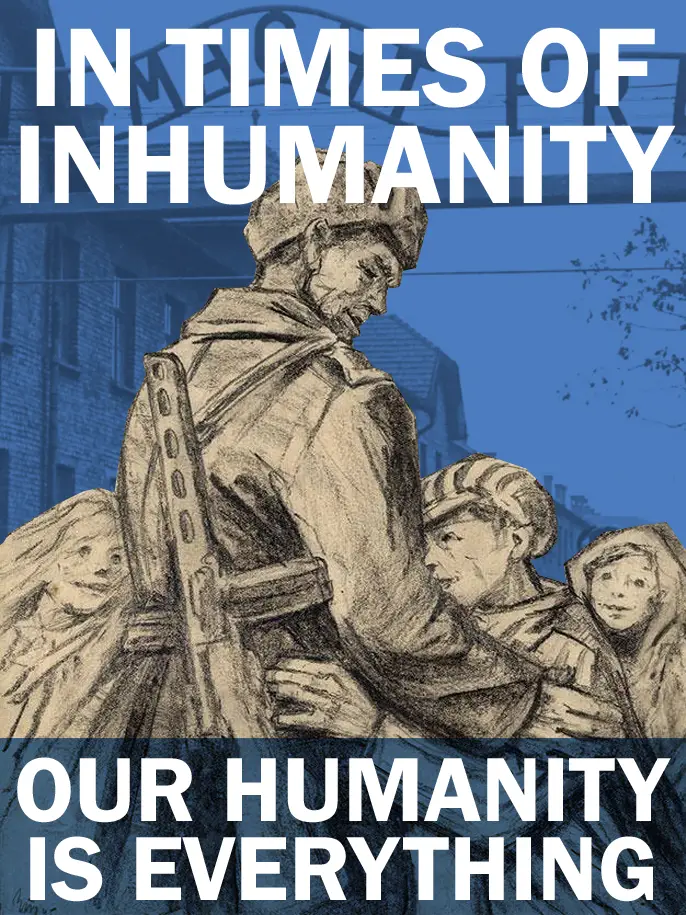|
Getting your Trinity Audio player ready...
|
Human rights are the cornerstone of modern civilisation, serving as a beacon of hope and justice in a world that often seems cruel and unjust. But what exactly is the definition of basic human rights, and why are they so important to understand?
In this article, we will delve into the world of human rights, exploring their history, the Universal Declaration of Human Rights, and the most critical aspects that form the backbone of this fundamental concept. Join us on a journey of discovery as we seek to unravel the mysteries of human rights and gain a deeper appreciation for the freedoms that we so often take for granted.
Basic human rights represent intrinsic equality between all human beings, regardless. They provide us with various freedoms, protect us from harm and provide restitution when violations are committed. The concept goes back in time and has evolved from great philosophers work into present-day law.
Varying Definitions of Basic Human Rights
Current human rights concepts, laws and declarations were shaped from the atrocities of the world’s deadliest conflicts. Today, the definition, interpretations and scale, (see: human rights index), can vary from country to country but are widely accepted and enforced worldwide.
To avoid disagreement and misinterpretation, the Universal Declaration of Human Rights (UDHR) lays the foundation and is recognised as the international political dogma for human rights.
It contains 30 articles, each of which provide definitions of the 30 basic human rights. Aside from the United Nations, other international, regional and national human rights organisations define their missions and goals accordingly with the UDHR.
Another source is the Oxford Dictionary, the authority for the English language which provides a short and similar definition:
Oxford Dictionary
While there are definitions and laws in place, not all governments or political leaders are able to provide basic human rights due to barriers and conflicts.
So, whether you are a seasoned human rights advocate or a curious observer, get ready to discover the essence of basic human rights and the most important aspects that define who we are as human beings.
Historical Overview of Human Rights
Let us begin with Cyrus the Great, one of the first figures associated with the concept and birth of human rights. He is known for freeing the slaves of Babylon and ruling as the first king of ancient Persia. King Cyrus declared people had certain rights and freedoms, specifically:
- the right to movement,
- freedom of religion, and
- racial equality.
He inscribed these human rights on a barrel-shaped clay cylinder in 539 BC, known as Cyrus’s Cylinder,. It is recognised by many archaeologists, researchers and scholars as the first bill on human rights.
Influence of Philosophers on Human Rights
In later years, philosophers such as Thomas Aquinas, John Locke, Thomas Hobbes, Thomas Paine and others introduced their revolutionary perspectives and established new theories and meanings of human rights.
In John Locke’s Second Treatise of Government he outlined his theory on the law of nature, in which he argued that man holds inalienable rights to life, liberty and property, including of one’s self. Locke’s contributions directly influenced the United States Declaration of Independence which is why he is often accredited as its pioneer.
Thomas Paine’s political theories and writings such as the rights of man, outline his concept of natural rights. Paine’s concept of rights were pivotal for their influence on the American Revolution and also the United States Declaration of Independence. Both Paine and Locke are among the many philosophers who established new ways of thinking about the relationship and duties of a government and its citizens.
The Birth of the United Nations
Following the global catastrophes of WWI and WWII, the United Nations was instituted in October 1945. Paramount was
- the prevention of war,
- discourse between nations, and
- international peace and security.
It is the international governing body for human rights which led to the creation of the Universal Declaration of Human Rights (UDHR). And is the milestone of human rights documents and international human rights law.
The Concept of Human Rights

The concept of human rights, while concrete, is continuously being expanded to avoid misinterpretation and ensure clear, unified understanding. The concept of human rights is defined by the United Nations. The international organisation that oversees and enforces global human rights protection puts it as follows:
United Nations
Key Historical Documents and Declarations
There are many historical documents and declarations that played a role in shaping present-day human rights treaties and instruments. The Cyrus Cylinder is the earliest historical document and charter of human rights declaring the freedoms of religion, movement and the rights to equality and life. A second key document is the Magna Carta, implemented in Medieval England in 1212. It was the first legal document to provide freedom to its citizens and the king under laws.
The two fundamental charters were foundational and forward thinking. They were followed by numerous human rights thinkers, but the Cyrus Cylinder and Magna Carta are the two foundational pillars crucial for their principles.
The Universal Declaration of Human Rights
The Universal Declaration of Human Rights (UDHR) is an international legally binding document made up of 30 articles which was adopted in 1948. It was created by the United Nations and its member states representatives from different political, cultural and religious backgrounds to ensure that it was universally applicable to all.
Categories of Basic Human Rights

The Declaration (UDHR) does not make a distinction or even allude to a hierarchy between the categories of basic human rights. Regional variations have however persisted over time. According to the United Nations Human Rights Office of the High Commissioner (OHCHR), the distinction between economic, social and cultural vs civil and political rights bred from deepening cold war tensions. Divides and different priorities initially led to covenants which were abandoned soon after.
Civil and Political Rights
In December 1966, the International Covenant of Civil and Political Rights was adopted by the United Nations’ General Assembly. This covenant focused on human rights related to freedom of religion and freedom from torture, including all cruel, inhumane or degrading forms of treatment and punishment. The West is most associated with prioritising this covenant and category of rights.
Economic, Social, and Cultural Rights
Also in December 1966, the International Covenant on Economic, Social and Cultural Rights was adopted by the United Nations General Assembly. It focused on the enjoyment of economic, social and cultural rights, including the right to equality and education regardless of gender or economic background. The East prioritised this covenant and category of rights.
Right to Development
More recently was the Declaration on the Right to Development, adopted by the United Nations General Assembly in December 1986. It was a catalyst for human rights and sustainable development in, and to acknowledge the massive gap and inequalities between the Northern and Southern hemispheres.
Most Important Aspects of Basic Human Rights
The most important aspects of basic human rights are:
- the Right to Life and Liberty which protects the right to life;
- Freedom from Torture and Inhumane Treatment, which protects us from degrading punishment and mistreatment from public authority created by the State;
- the Right to Equality and Non-Discrimination which ensures all human beings are treated equally by the law and garner equal protection;
- Freedom of Expression and Association, which provides us with the rights to free speech, press, assembly and our right to protest;
- the Right to Work and Education, which stands for everyone’s access to education and labour protection.
Implementation and Enforcement of Human Rights
- Only national governments can implement and enforce human rights.
- International bodies can develop normalities, laws and instruments,but are unable to enforce anything without a country’s acceptance and ratification. This is due to a nation’s right to sovereignty.
- Civil society, human rights organisations and governments must all work together to ensure not only implementation and enforcement but respect for human rights.
- Advocacy, education, protection, reparation and preventative measures for human rights are all country-specific and depend on international standards.
The Role of International Bodies
The role of international bodies is to develop international laws and assist with a smooth transition to implementation, ratification and enforcement of international laws. International bodies cannot always prevent human rights due to legal barriers. However, in extreme cases of human rights violations, there are international judicial bodies that have the power to intervene. One of these bodies is the International Court of Justice (ICJ) which has taken on cases of genocide, war crimes and other grave violations most often found in conflict and crisis settings.
Responsibility of State Governments
States have a responsibility to protect all civilians within their borders.However, human rights are not legally binding worldwide. While most of us believe Human Rights to be Universal, they must be ratified by each respective country to be law. This means that even though the United Nations has adopted the universal declaration of human rights (UDHR) and recognises the right to food, each government must enshrine food as a fundamental right within their individual laws and institutions.
Contributions of Civil Society
Civil society plays a major role in human rights, from raising awareness to monitoring violations, as well as holding institutions and offenders at all levels accountable. They give a voice to those who are unable to show up or participate in human rights conversations. They can help facilitate, support and aid survivors of violations find peace and often retribution. Civil society is made up of individuals and groups that share common interests and advance human rights across the world. Most of all, they are invaluable to continue positive momentum.
Final Thoughts
In summary, the definition of basic human rights indicates they are a vital aspect of our world. They serve as a constant reminder of our inherent dignity and worth as human beings. From the right to life and liberty, to the freedom from torture and inhuman treatment. Add the right to equality and non-discrimination, human rights are the building blocks. They make up the very fabric of our society.
Through international bodies, state governments, and civil society, we have power to ensure rights are respected and upheld. As we reflect on the importance of basic human rights, let us strive to be their guardians. Let us spread awareness and protect them for future generations to come.
By doing so, we honour the legacy of those who fought for human rights before us. We ensure that the flame of freedom continues to burn brightly in a world that is often clouded by darkness. Embrace the spirit of human rights and live life in ways that celebrate the beauty and potential of being human.
FAQs
Q. What is the definition of basic human rights?
A. Human rights are defined as fundamental freedoms that are inherent to all human beings. Regardless of race, gender, nationality, or any other status, they are the foundation of modern society. And they serve as a reminder of our inherent dignity and worth as human beings.
Q. What is the Universal Declaration of Human Rights?
A. The Universal Declaration of Human Rights is a landmark document adopted by the United Nations in 1948. It sets out 30 articles that define the basic human rights to be respected and upheld by all member states.
Q. What are the categories of basic human rights?
A. The basic human rights can be divided into three categories. Civil and political rights, economic, social, and cultural rights, and the right to development.
Q. What are the most important aspects of basic human rights?
A.The most important aspects of basic human rights include the right to life and liberty, freedom from torture and inhuman treatment, right to equality and non-discrimination, freedom of expression and association, and the right to work and education.
Q. Who is responsible for ensuring the implementation and enforcement of human rights?
A.The implementation and enforcement of human rights is the responsibility of international bodies, state governments, and civil society. All three play an important role in ensuring that these rights are respected and upheld.


